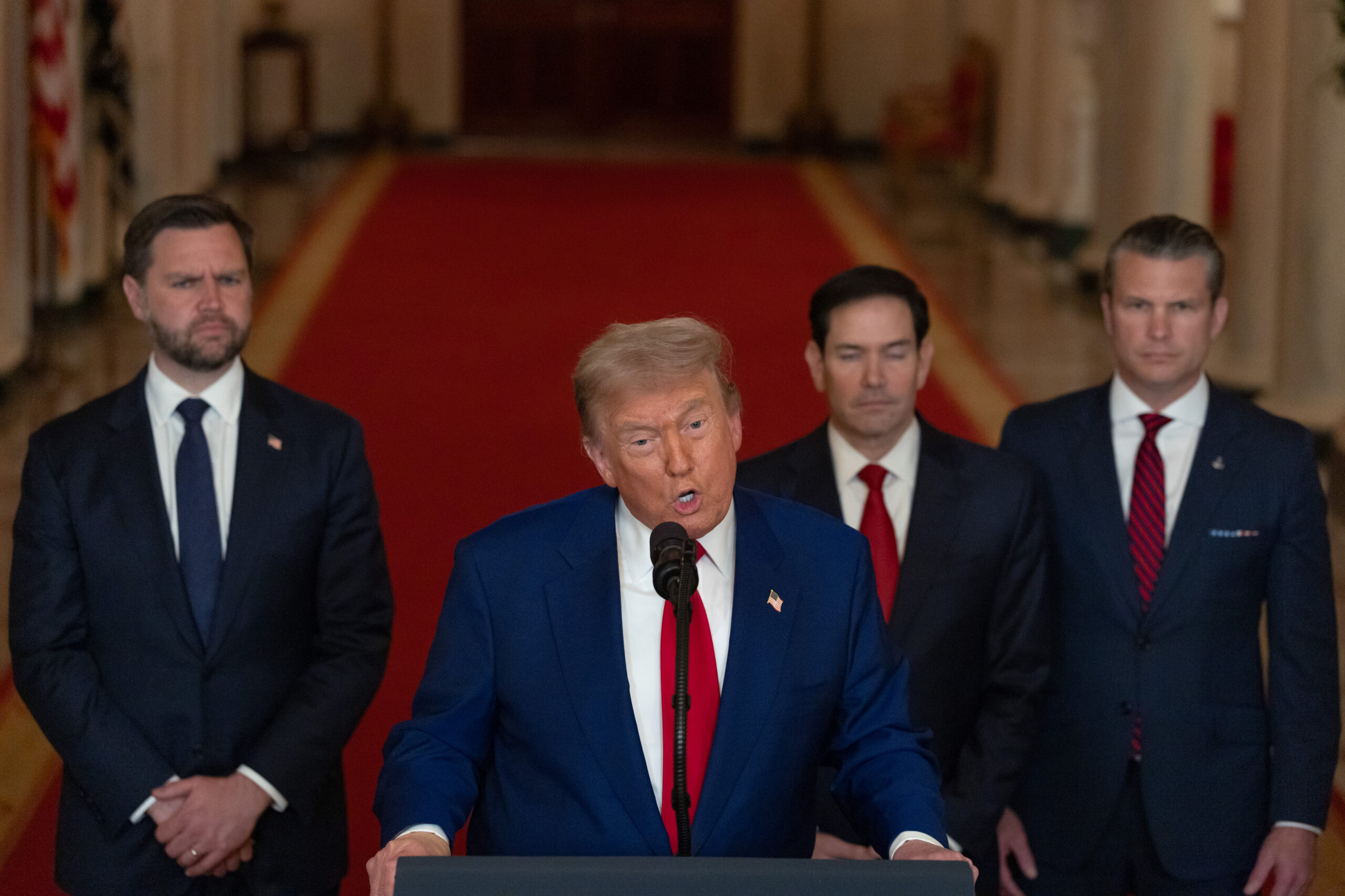- June 23, 2025
Trump’s Iran strike could boost — or ruin — his troubled presidency

Before we get into why Trump’s decision aligns with the consensus among the world’s biggest democracies — that Iran should not be allowed to obtain nuclear weapons — let’s remember that Trump’s popularity was falling fast before the strike.
Only 42% of Americans approve of Trump’s job performance, while 54% disapprove of it, according to a large-sample Reuters-IPSOS poll conducted June 11-16. Most Americans view Trump negatively, not only on the economy, which was once his strong point, but also on immigration, according to polls.
The U.S. economy has slowed dramatically since Trump took office and launched his erratic tariff wars. According to the latest World Bank projections, the U.S. economy will only grow by 1.4% this year, which would be half of its 2.8% growth last year, in part because of the uncertainty created by Trump’s on-and-off threats to impose huge import taxes on foreign goods.
Likewise, many Trump voters in states with large immigrant communities, like Florida, are disappointed by Trump’s decision to deport hundreds of thousands of immigrants without criminal records, including more than 350,000 Venezuelan Temporary Protected Status (TPS) holders who entered the country legally. During the 2024 campaign, Republicans claimed that Trump would focus on deporting violent criminals.
Before his Iran strike, Trump was also haunted by his growing image as a wavering leader. His repeated reversals of his own tariff ultimatums — first vowing to impose 145% tariffs on China, then reducing them to 30% — made him an object of mockery in European capitals and among U.S. critics.
A Financial Times columnist popularized the acronym TACO — Trump Always Chickens out — to describe the U.S. president’s trade strategy. Trump got visibly upset when he was asked about the TACO reference at a recent press conference. His fear of being perceived as an indecisive leader may have pushed him — after weeks of reportedly telling Israel’s Prime Minister Benjamin Netanyahu he would not get dragged into the conflict — to join Israel’s military offensive against Iran’s nuclear sites.
But if Trump’s Iran gamble turns out well and Iran’s theocratic dictatorship either crumbles or gives up its uranium enrichment program through diplomatic negotiations — a big if — Trump will be credited with having done something four previous presidents contemplated but ultimately failed to do.
Internationally, virtually all major Western democracies agree that Iran is a threat to Israel, and to the world.
In a statement at the end of the June 16 summit of the G-7 group of Western democracies in Alberta, Canada, the leaders of the United States, the United Kingdom, France, Germany, Japan, Italy and Canada said that “We have been consistently clear that Iran can never have a nuclear weapon.”
The G-7 bloc’s statement added that “Iran is the principal source of regional instability and terror in the Middle East,” and that “We affirm that Israel has a right to defend itself.”
Days earlier, on June 12, the International Atomic Energy Agency (IAEA) for the first time in 20 years issued a statement warning that Iran was not complying with its nuclear nonproliferation agreements. Translation: Iran was enriching uranium at levels only justified to build nuclear weapons.
Skeptics who don’t follow Iran’s political history may ask themselves why the world doesn’t allow Iran to have nuclear weapons like India, Pakistan and other countries. The answer is simple: Unlike other countries, Iran has a state policy of trying to “eliminate” a nearby sovereign country — Israel— that has been recognized by the United Nations since 1948.
This is not about Western countries being against Iran’s Jurassic theocracy for imprisoning women for failing to cover their heads with a hijab, or for executing gays, or any of its other abhorrent internal policies. The reason is that if we allow a country that calls for the destruction of another nation to have a nuclear bomb, it will set a precedent that makes the world even more dangerous.
In Iran’s case, it’s not just Iranian Supreme Leader Ayatollah Ali Khamenei’s crazy rhetoric, but his actions. Iran has long provided financial aid to terrorist groups like Hezbollah in Lebanon and Hamas in Gaza. Iran’s proxies have carried out terrorist attacks as far away as Argentina, where Hezbollah was found responsible for the bombing that killed 85 people and wounded hundreds at the AMIA Jewish Community Center in Buenos Aires in 1994.
There are many ways in which Trump’s political gamble may go wrong, especially if Iran moved some of its enriched uranium into a secret location outside Fordo, or if it unifies Iranians behind their decrepit regime. But if Iran’s regime falls, or agrees to a serious international nuclear monitoring agreement, Trump’s faltering second term will get a second wind.

